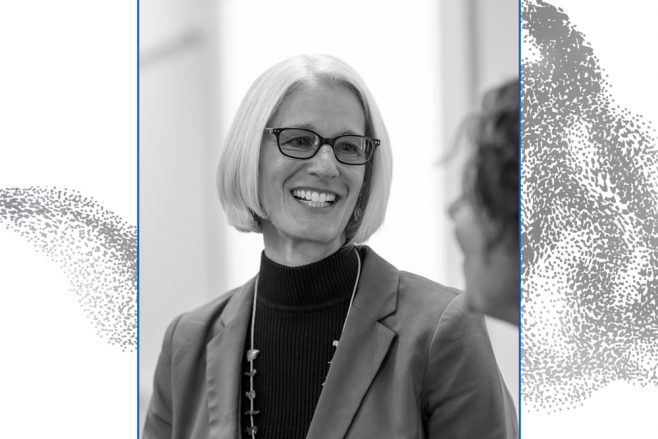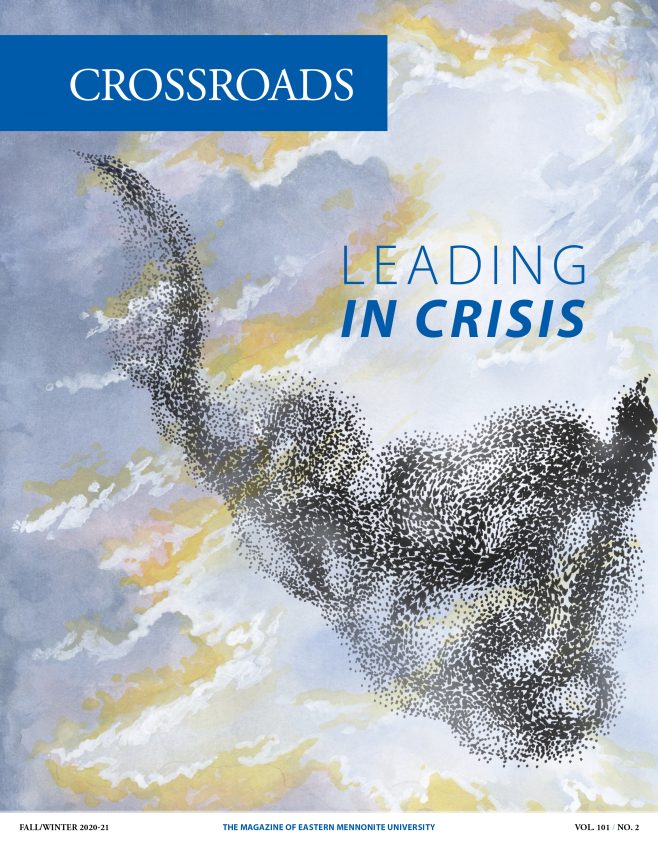
JEANNINE UZEL MSN ’18 expected 2020, designated as the Year of the Nurse and the Midwife by the World Health Assembly, to be one of celebration and recognition for her colleagues at the Virginia Department of Health. Instead, as the director of public health nursing for the Virginia Department of Health, she has provided leadership during this ongoing pandemic. Throughout 30 years of nursing experience in a variety of settings, from ICUs, hospice, schools and universities, acute care and psychiatric hospitals, she’s been involved in multiple trainings for pandemics. Still, this current experience has been “absolutely surreal,” she said, working without a “clear road map from the Centers for Disease Control, among a politicized public, under media scrutiny, with limited testing capacity and a vaccine perhaps months away” [quoted from her Oct. 17, 2020, TenTalk].
Uzel and her nursing colleagues — she calls them “the Swiss Army knives of the public health corps” – have adapted under difficult conditions to serve the public.
Here are three themes from her talk:
TRANSFORM AND EMPOWER
Moving away from the inflexible, top-down, hierarchical structure, Uzel and others have promoted collaborative, agile partnerships. The model is based in part on a concept popularized by retired Army Gen. Stanley McChrystal.
The “team of teams” idea reverses the top-down approach and gives each part of this response to a team that is the expert. We have found it is literally impossible for one person to be an expert on all aspects of this pandemic.
POSITIVE ADAPTATION
Instead of only promoting resilience, “we take a little time to mourn what we don’t have and to adapt to what we have in the new,” she said.
How can we roll with the new science as it comes out, knowing we are going to make some public health mistakes and have to backtrack? Instead of seeing that as a failure, we have started embracing the fact that each time we have a different iteration, we’re figuring out how to work with it and stay focused on moving forward.
STAY TRUE TO THE MISSION
Focusing on adaptation and new systems also means finding new ways to serve those in need and those who are suffering, Uzel said. There is concern for children at home who rely on school nutrition programs or watchful adults to help monitor healthcare conditions; the frail elderly in nursing homes; those trapped in situations of domestic abuse; the homeless who lack safe shelter.
We are also very concerned about people of color who have been disproportionately affected in infection rates, hospitalization rates, and complication rates. The Virginia Department of Health has representatives on the Governor’s Health Equity Work Group, which was formed to address issues and figure out what we’re looking at and how we can involve communities in identifying their own solutions and issues – soliciting their input as partners, instead of coming in and telling people what they need to be doing.
